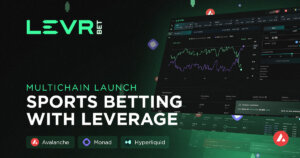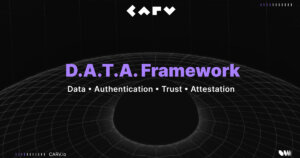 The alternative to web5 using smart tokens on EVM compatible chains – SlateCast #5
The alternative to web5 using smart tokens on EVM compatible chains – SlateCast #5 The alternative to web5 using smart tokens on EVM compatible chains – SlateCast #5
Web5 received a lot of attention when it was announced but Victor Zhang of Smart Token Labs believes the future is built around smart tokens that go beyond the web5 vision
CryptoSlate spoke to Victor Zhang, founder of Smart Token Labs and TokenScript, about the future of tokenization and how it can infiltrate the world of web2. Zhang believes the future of web3 is for every website or application to be built into its own token. Each token will interact with other protocols or wallets to represent digital ownership across multiple applications.
The future of tokenization is not limited to artwork or rights management; according to Zhang, smart tokens will represent ownership of physical items, services, web IDs, event attendance, and personal identity. The ownership will take place on the user side, similarly to the concept of web5, but will not be limited to the Bitcoin network.
This 31-minute interview goes into detail as to how smart tokens can offer an alternative to web5.








 Elon Musk
Elon Musk 





































































